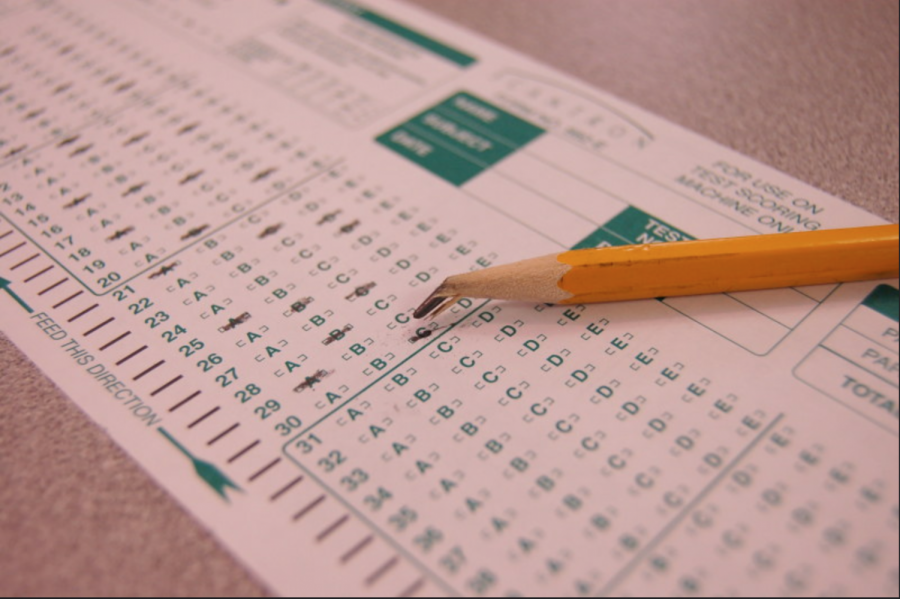For the past few decades, high school students have been tirelessly studying for the three-hour, 154 question test that would determine their future. Countless hours of preparation, tutoring, and tears have led to this moment, while thousands of dollars have been exhausted with the hopes of bumping their score up even by the slightest bit.
The Scholarship Aptitude Test (SAT) was initially designed to assess how students will perform in college. It is part of almost every college applicant’s resume, which also contains their GPA and extracurriculars. However, over the years, the effectiveness and fairness of the SAT have continued to be questioned, and UC schools have considered eliminating the SAT from their list of requirements.
Many people blame the SAT for contributing to the economic inequalities of getting into college. A wealthy family can afford prep classes and even hiring one-on-one tutors, while a lower-income family may not be able to afford extra classes or tutors.
Cole Gunning, a sophomore, has already begun to prepare for the SAT and is in the process of getting a private tutor. Gunning believes that the SAT is a massive indicator of essential knowledge and shows how prepared one is for college, but he also recognizes the possible economic barriers.
Gunning said, “I feel like the SAT is kind of unfair because a lot of people can’t afford an SAT tutor, which can be vital in receiving a good essay score. However, it can be a way of deciding if you’re a good student and if you’re ready for college.”
Aside from financial differences, a person’s ethnicity and race play a role in how scores are considered due to the fact that diversity is valued in UC schools.
Isabella Chu, a junior who had already taken her SAT back in December of 2019, believes that one’s ethnicity can paint a different picture onto their score.
“For example, somebody with Asian descent can get a 1550 on their SAT, and it is pushed to the bottom of the pool compared to another minority who receives a 1200. It’s unfair,” Chu said.
In addition to the ethnicity factor, some people believe that one test is not an indicator of college readiness.
Connie Dominguez, a counselor and application reviewer at UC Davis, argues that the SAT doesn’t tell them much about a student’s knowledge or work ethic.
Dominguez said, “If we weren’t to look at the SAT, and we were to look at all the applications, we would still be reading them the same way with or without the SAT. The SAT doesn’t tell us much.”
Dominguez continues to explain that the SAT doesn’t play that much of a role in the application process and never predicts one’s future. Many other elements are included in one’s resume that say a lot more about that person.
“Our predictors are so many other behaviors like the AP classes rigor, what you do outside of school, academic enrichment, and how you manage your time so that you can get good grades. It’s not whether or not you prep for a one-day test,” Dominquez said.
Even though Dominguez believes that the chances of UC schools getting rid of the SAT are quite high, most students will probably continue to prep and take the SAT.
Even if UC schools opt not to require the SAT, other schools may continue to require it. Therefore, many students will continue to take the test for good measure.
Many students today are still putting in extraordinary amounts of effort to prepare for this test. As long as students continue to show interest, Carlmont will continue to hold SAT classes and practice tests.
The next practice SAT full-length test at Carlmont will be held on Feb. 1 from 8:45 a.m. to 12:45 p.m. in the Student Union. The registration deadline is Jan. 24.













